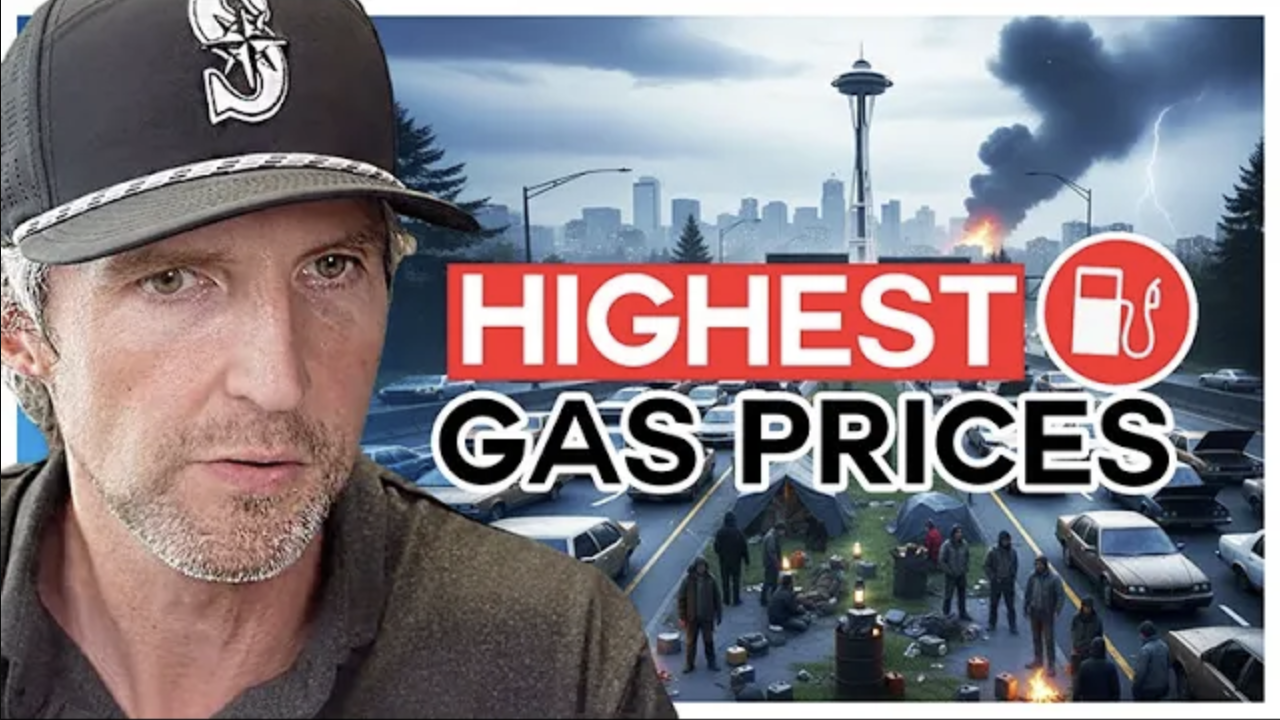Categories
Gas prices, Taxes, Washington StatePublished October 16, 2025
Why Washington Has the Highest Gas Prices in America | Washington Gas Prices Explained

Washington State drivers are paying the highest gas prices in the nation. Not California. Not Oregon. Not Hawaii or Texas. It is Washington, and if you live here, you are probably feeling the pain every time you fill up.
So why is this happening? It comes down to taxes, policy mistakes, and a growing pattern of financial overreach that is costing drivers and businesses across the state.
I am Anton Stetner, a local small business owner, real estate professional, and lifelong Washington resident. I love this state, but the tax and spend mentality of our leadership has gone too far. It is time to break down exactly why gas prices are so high, where the money is going, and what comes next.
The Real Numbers Behind Washington’s Gas Prices
In September, gas prices in Washington hit an average of $4.65 per gallon, compared to a national average of $3.19. In some areas like Bellevue, drivers were paying over $5.19 per gallon.
Washington’s gas tax now sits at 55.4 cents per gallon, ranking as the third highest in the country. When you add the federal gas tax of 74 cents per gallon, Washington drivers are paying more than $1.29 in taxes on every gallon of gas.
But that is not the whole story. The Climate Commitment Act (CCA) — a cap-and-trade program — adds hidden costs that vary depending on carbon credit auctions. The more demand for those credits, the higher the cost of fuel. The system is complex, unregulated in pricing, and completely disconnected from what consumers can afford.
The Hidden Gas Tax: The Climate Commitment Act
Under the CCA, refineries and fuel suppliers must buy carbon allowances for every ton of carbon they emit. The state then auctions off these allowances, creating a fluctuating price that refineries pass directly to you at the pump.
Estimates from recent auctions show that the CCA adds anywhere from 18 to 37 cents per gallon to fuel prices. These fees have brought in nearly $3.5 billion in new revenue for the state since the program began.
While the program is marketed as an environmental initiative, the results tell a different story. Since 2023, the CCA has reduced emissions by only about 0.6 percent — a rounding error, not a revolution. Washington is paying more but achieving almost nothing measurable in terms of climate impact.
Where the Money Actually Goes
So where does all this money end up? The breakdown looks like this:
-
44% goes to state highways
-
30% goes to cities and counties (19.2% to counties, 10.7% to cities)
-
5% supports ferry systems
-
20% goes to bonds and special projects
In theory, this should maintain roads and infrastructure. In reality, counties now receive $500 million less per biennium than they did three decades ago when adjusted for inflation. Drive anywhere in the state and you will see the results — potholes, poor maintenance, and delays.
Even more frustrating, part of the gas tax revenue is now being used to fund non-transportation programs, including homeless encampment cleanup along state highways.
The Electric Vehicle Paradox
Washington State has mandated that all new vehicles sold by 2030 must be electric. This aggressive timeline means a huge drop in gas tax revenue within the next decade. The state already projects a 45 percent shortfall in transportation funding by 2035 as more drivers switch to electric vehicles.
The solution? Another tax. Lawmakers are testing per-mile road usage fees, where every driver pays based on how many miles they drive each year. Think of it as a subscription to the state of Washington, where you pay every mile you drive — forever.
This system would apply to both electric and gas-powered cars, meaning no one escapes the cost.
What This Means for Drivers and the Economy
In the short term, expect higher gas prices through 2025 and beyond. Washington’s unique mix of limited refinery capacity, no interstate pipelines, and climate policy experiments makes it one of the most expensive states to drive in.
In the long term, as electric vehicle mandates and per-mile taxes take effect, the cost of transportation will shift but never decrease. It will simply be repackaged in new forms of taxation.
This constant cost pressure impacts every corner of the economy, especially real estate. As commuting becomes more expensive, suburban sprawl will slow, and demand will focus closer to job centers. Proximity to work, transit, and amenities will become even more valuable.
For buyers and investors, that means location matters more than ever. For builders and developers, the trend will favor infill projects and dense housing near transit corridors.
The Path Forward
Washington’s current approach is unsustainable. Taxes are rising faster than wages, infrastructure is not improving, and citizens are being squeezed from every angle.
The state needs smarter fiscal management and more accountability. Climate goals should be achieved through innovation and efficiency, not endless new taxes.
I love this state. I believe we can find better solutions. But for that to happen, we need to speak up, get involved, and demand that our leaders stop taxing us into oblivion.
Until then, every drive in Washington feels a little like highway robbery.
.png)




